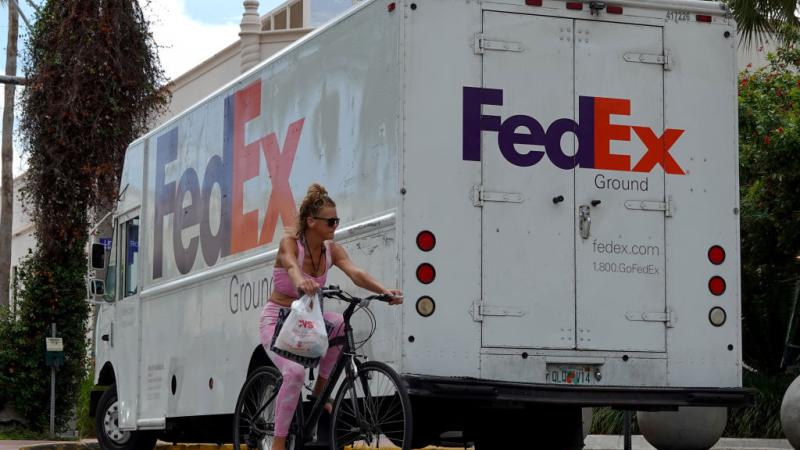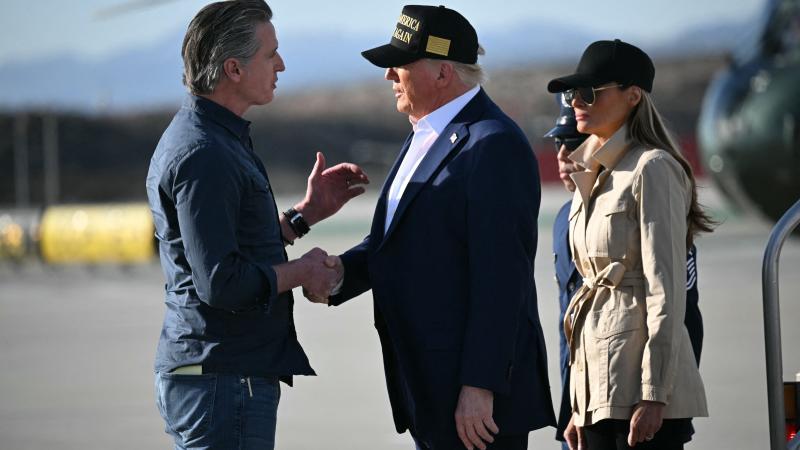Biden-Buttigieg DOT fails to track aviation imports while prioritizing equity, climate justice
New IG report finds "several vulnerabilities that increase the risk of aviation supply chain disruptions, including the lack of visibility into supply chains, dependence on sole-source or limited suppliers, and lack of access to rare earth metals and elements."
The Transportation Department and the Federal Aviation Administration do not track imports of plane parts, creating serious vulnerabilities that could increase the risk of supply chain disruptions, according to a new report by the department's internal watchdog.
The DOT and FAA are not required to track aviation imports, but the "COVID-19 pandemic caused major disruptions in the aviation supply chain and highlighted the need for Federal intervention to address associated vulnerabilities," the Transportation Department Inspector General wrote in a report published last week.
"We identified several vulnerabilities that increase the risk of aviation supply chain disruptions," the IG reported, "including the lack of visibility into supply chains, dependence on sole-source or limited suppliers, and lack of access to rare earth metals and elements."
The report came in response to a request from Republicans on the House Transportation and Infrastructure Committee and its Aviation Subcommittee after members asked in April 2021 how the agency tracks critical aircraft imports and the number of aviation parts produced exclusively in China or India.
Overall, France is the leading source of U.S. imports of aviation products, with 24% of the total. Canada ranks second, with 17%. China, accounting for 2% of U.S. aviation imports, comes in at number 10.
However, the U.S. depends on China for low-cost aviation materials, such as batteries, the report found.
The fact the government does not track aircraft imports means there is a lack of visibility into supply chains, which can make it more difficult for manufacturers to identify and resolve issues if problems do arise, the report said.
Because of the COVID pandemic, demand for air travel decreased, causing a corresponding decrease in the need for aviation products and an additional supply chain disruption, according to the watchdog.
At an Aviation Subcommittee hearing on safety in March of 2021, the panel's top Republican, Louisiana Rep. Garret Graves, expressed concerns about COVID's effects on the aviation industry.
"In terms of safety, are we ready?" he asked in his opening remarks. "Equipment has been in storage; pilots aren't getting the number of hours they normally get; and what about other airline workers, flight attendants, and mechanics? Are we ready to go, to do it safely, and to ramp back up quickly to 100 percent capacity?"
Meanwhile, Transportation Secretary Pete Buttigieg has been under fire for using taxpayer-funded private jets despite his support for carbon emission curbs. A former mayor of South Bend, Indiana and candidate for the 2020 Democratic presidential nomination, he has also weighed in on issues unrelated to his position as secretary. For example, in a CNN interview earlier this month, Buttigieg, an openly gay man, celebrated how Biden signed the Respect for Marriage Act into law.
The department recently announced plans to award $1.5 billion in grants for projects to promote "racial equity," "environmental justice," and union jobs in transportation, an initiative former HUD Secretary Dr. Ben Carson recently slammed as "Christmas wish list of the woke left."
















